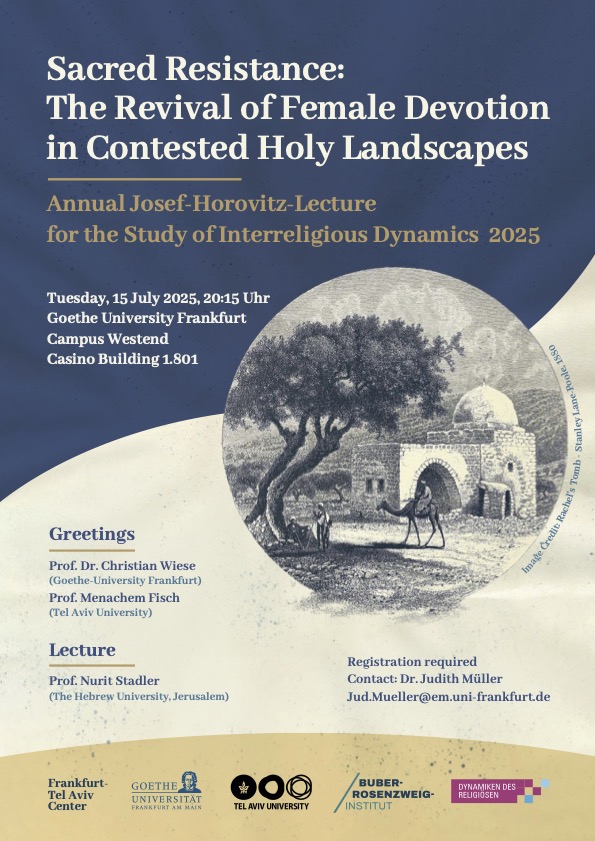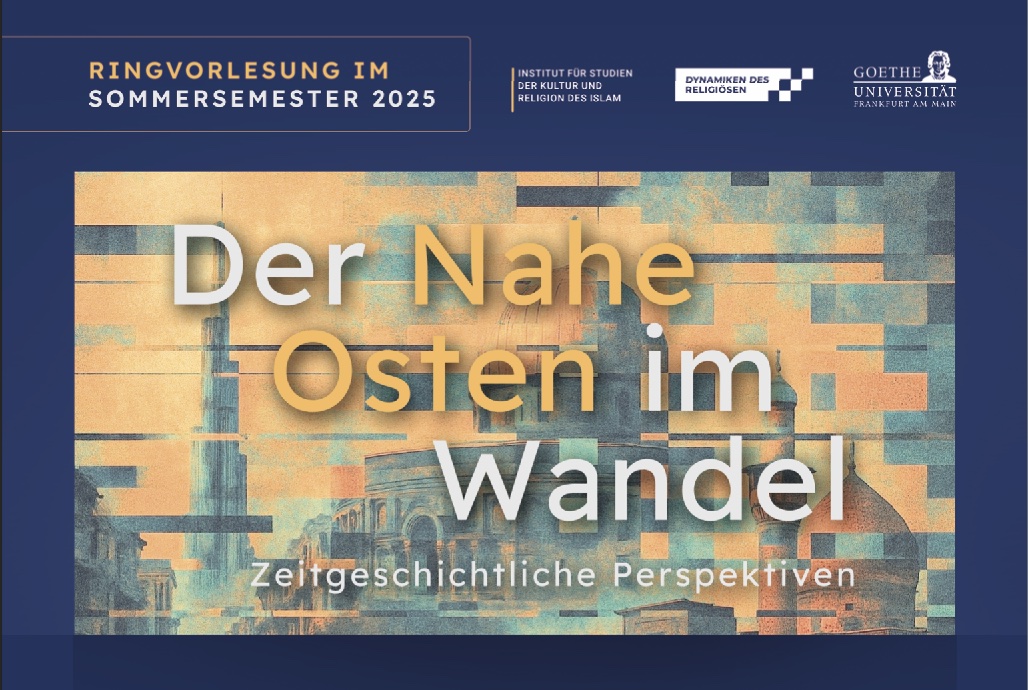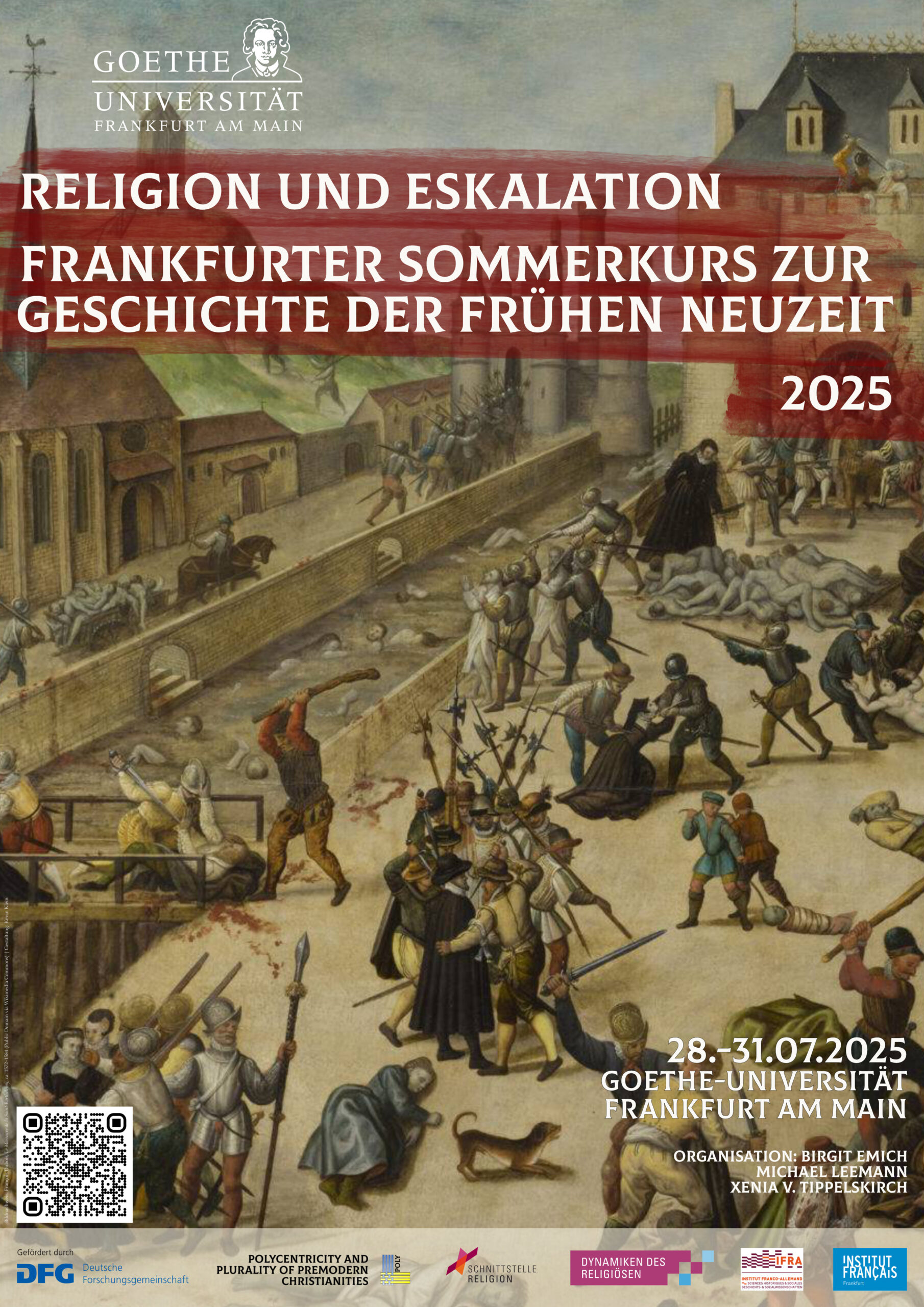Sacred Resistance: The Revival of Female Devotion in Contested Holy Landscapes. A Lecture By Prof. Nurit Stadler.
Goethe-Universität, Campus Westend, Casino-Gebäude, Raum 1.801 Frankfurt am MainNurit Stadler is a Professor in the Department of Sociology and Anthropology at the Hebrew University of Jerusalem. Her primary research focuses on the sociology and anthropology of religion, with an emphasis on religious resurgence, fundamentalism, and the complex relationships between scriptures, cosmology, and politics within diverse religious communities in urban settings. She has also explored the anthropology of pilgrimage, sacred places, rituals, tomb worship, and iconography in Greek Orthodox, Roman Catholic, Orthodox Jewish, and Sunni Muslim traditions across the sacred landscapes of the Holy Land. She is the recipient of the prestigious Humboldt Research Prize (2025) and has held senior research fellowships at Leipzig University, the Freie Universität Berlin, and University of Zurich.: Yeshiva Fundamentalism: Piety, Gender, and Resistance in the Ultra-Orthodox World (2008), which examines transformations in Ultra-Orthodox communities and the Yeshiva world in relation to modernity, urbanism and nationalism. A Well-Worn Tallis for a New Ceremony (2012), which explores the intersections of religion and politics in Israel/Palestine and Voices of the Ritual (2020), which investigates the resurgence and manifestations of rituals at female saint shrines in the Holy Land.


